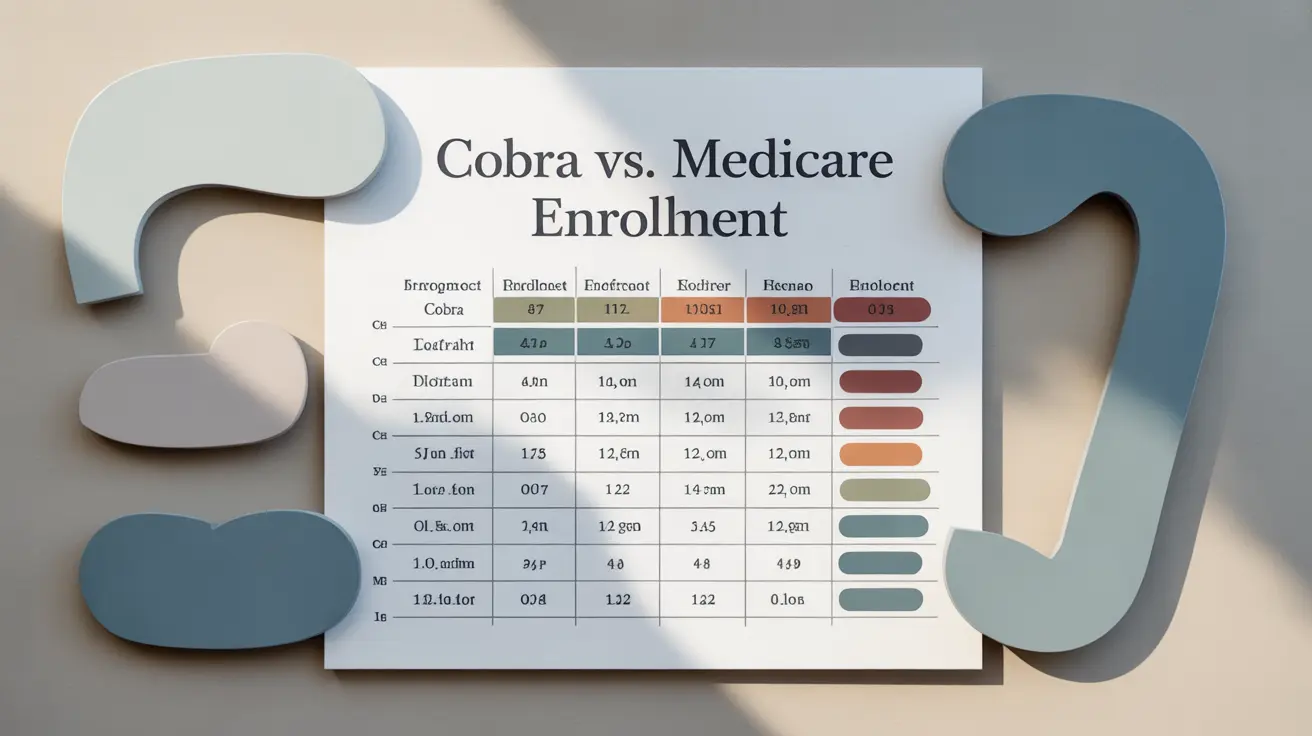Navigating healthcare coverage during retirement or employment transitions can be complex, especially when it comes to understanding how COBRA and Medicare interact. One of the most critical situations to be aware of is the COBRA Medicare trap, which can lead to costly penalties and gaps in coverage if not properly understood.
This comprehensive guide will help you understand the potential pitfalls of coordinating COBRA and Medicare coverage, and provide crucial information to help you make informed decisions about your healthcare coverage.
What Is the COBRA Medicare Trap?
The COBRA Medicare trap occurs when individuals over 65 rely on COBRA coverage instead of enrolling in Medicare when they become eligible. This can result in delayed enrollment penalties, gaps in coverage, and potential financial consequences that many people don't anticipate.
COBRA (Consolidated Omnibus Budget Reconciliation Act) allows you to temporarily keep your employer's health insurance after leaving your job, but it should not be viewed as a replacement for Medicare enrollment when you're eligible.
Key Timing Considerations for Medicare Enrollment
Initial Enrollment Period
Your Initial Enrollment Period (IEP) for Medicare begins three months before the month you turn 65 and ends three months after your birthday month. Missing this window can trigger late enrollment penalties that last throughout your Medicare coverage.
Special Enrollment Periods
If you're still working and covered by your employer's health plan (or your spouse's plan), you may qualify for a Special Enrollment Period. However, COBRA coverage does not qualify you for a Special Enrollment Period.
Understanding Medicare Parts A and B
Medicare Part A
Most people qualify for premium-free Part A, which covers hospital stays and related services. It's generally recommended to enroll in Part A when first eligible, even if you have COBRA coverage.
Medicare Part B
Part B covers outpatient care, preventive services, and medical supplies. Unlike Part A, Part B always comes with a monthly premium, and delayed enrollment can result in permanent penalties.
COBRA Coverage Rules and Medicare
If you become eligible for Medicare while on COBRA, your COBRA coverage may end. Additionally, if you're already eligible for Medicare when you elect COBRA, your COBRA coverage might not cover all your medical expenses, potentially leaving you with significant out-of-pocket costs.
Avoiding the Trap: Essential Steps
To avoid the COBRA Medicare trap, consider these crucial steps:
- Enroll in Medicare Part A and Part B during your Initial Enrollment Period
- Don't rely solely on COBRA coverage if you're Medicare-eligible
- Understand that COBRA is secondary to Medicare once you're eligible
- Consult with a Medicare counselor or insurance professional to understand your specific situation
Frequently Asked Questions
What is the COBRA Medicare trap, and how can you avoid it?
The COBRA Medicare trap occurs when individuals delay Medicare enrollment while on COBRA coverage, leading to penalties and coverage gaps. Avoid it by enrolling in Medicare when first eligible and understanding that COBRA cannot substitute for Medicare coverage.
How does Medicare work with COBRA coverage after age 65, and what are the potential penalties for not enrolling in Medicare Part B on time?
After age 65, Medicare becomes primary and COBRA secondary. Late enrollment in Part B can result in a penalty of 10% for each 12-month period you could have had Part B but didn't, lasting for as long as you have Medicare.
Can COBRA coverage be used as a substitute for Medicare, and what are the implications of not enrolling in Medicare when eligible?
No, COBRA cannot substitute for Medicare. Not enrolling in Medicare when eligible can result in late enrollment penalties, gaps in coverage, and potentially higher out-of-pocket medical costs.
How long can I stay on COBRA after becoming eligible for Medicare, and what happens to my coverage if I decide to enroll in Medicare later?
COBRA coverage typically ends when you become eligible for Medicare. If you delay Medicare enrollment while on COBRA, you may face penalties and have to wait until the General Enrollment Period to sign up.
What are the differences between Medicare Part A and Part B, and when should I enroll in each to avoid gaps in coverage and penalties?
Medicare Part A covers hospital care and is usually premium-free, while Part B covers outpatient care and medical services with a monthly premium. Enroll in both during your Initial Enrollment Period to avoid penalties and coverage gaps.




